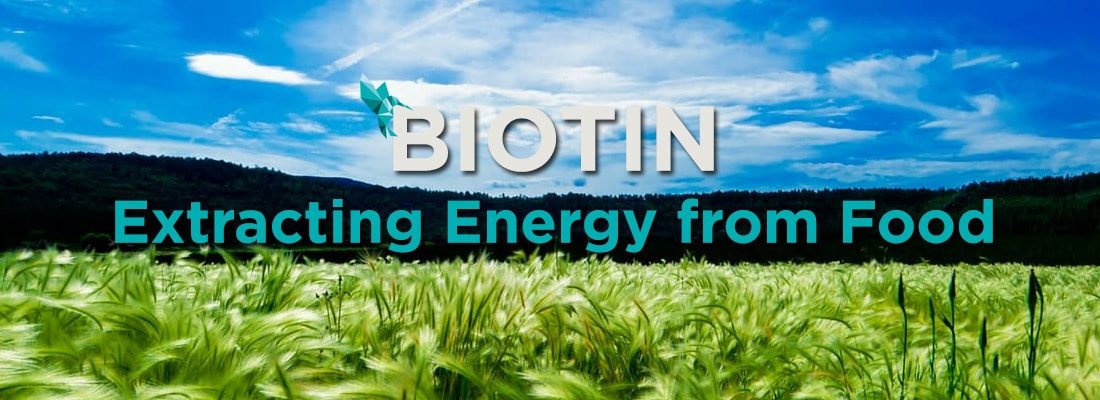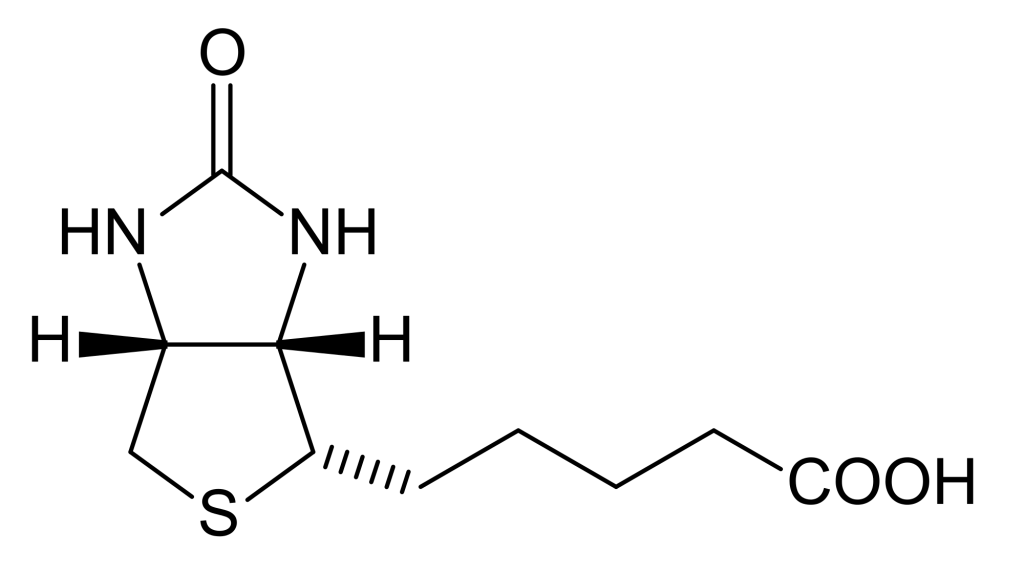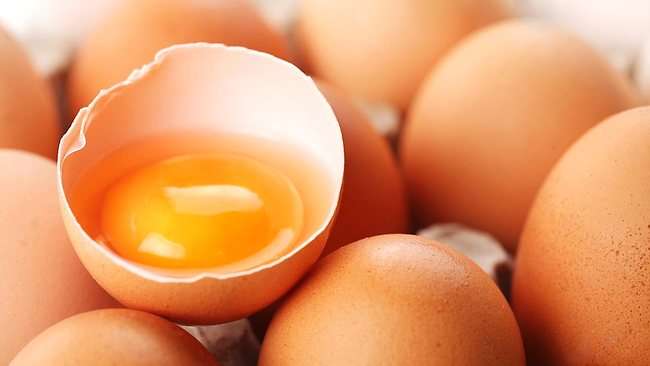
Biotin – Extracting Energy from Food
This Week’s Nutrient: Biotin!
I’ve written about Choline, Thiamine, Riboflavin, Selenium, Potassium, Niacin, and Vitamin D before. This time I’ll take a look at Biotin.

Source: Wikipedia
So, What Is It?
Biotin is also known as Vitamin B8 (B7 in Germany and the USA) or Vitamin H. As with all B-vitamins, it helps with extracting energy from your food, and absorbs it into the body. Basically, it’s what turns the macronutrients (carbohydrates, protein, and fat) into caloric energy. It also plays a role in strengthening your hair and nails.
A wide variety of foods are good sources of Biotin. Meats, milk, nuts, eggs, bananas, soybeans, and grains among others. The body is also capable of producing some biotin, though not enough to sustain itself.
What Are the Effects of Consuming Too Much, or Too Little?
A Biotin deficiency hardly ever occurs. Most cases are as a direct result of consuming too many raw eggs. Many of these people are bodybuilders. There’s a protein in raw eggs called avidin, which binds to biotin and blocks its absorption into the body. Cooking an egg changes the protein structure in the egg whites, inactivating the avidin.
A lack of Biotin can cause physical symptoms like skin rashes and hair loss. It can also lead to neurological issues such as numbness in limbs, hallucinations, and general depression. So avoid eating too many raw eggs!

Source: News Limited
Cook these!
An overdose of Biotin is virtually impossible. The excess is eliminated from the body through urine.
There is no Dutch recommendation for an Adequate Intake (AI) of Biotin for adults. However, the EFSA published a recommended Adequate Intake of 40mcg in 2014, so we adhere to that. As mentioned, there is no real downside to an excess of Biotin, which is why we put 50mcg of Biotin in Queal, just to ensure an adequate daily intake of Biotin.
Queal holds 50mcg of Biotin, an AI of 125%.



No Comments